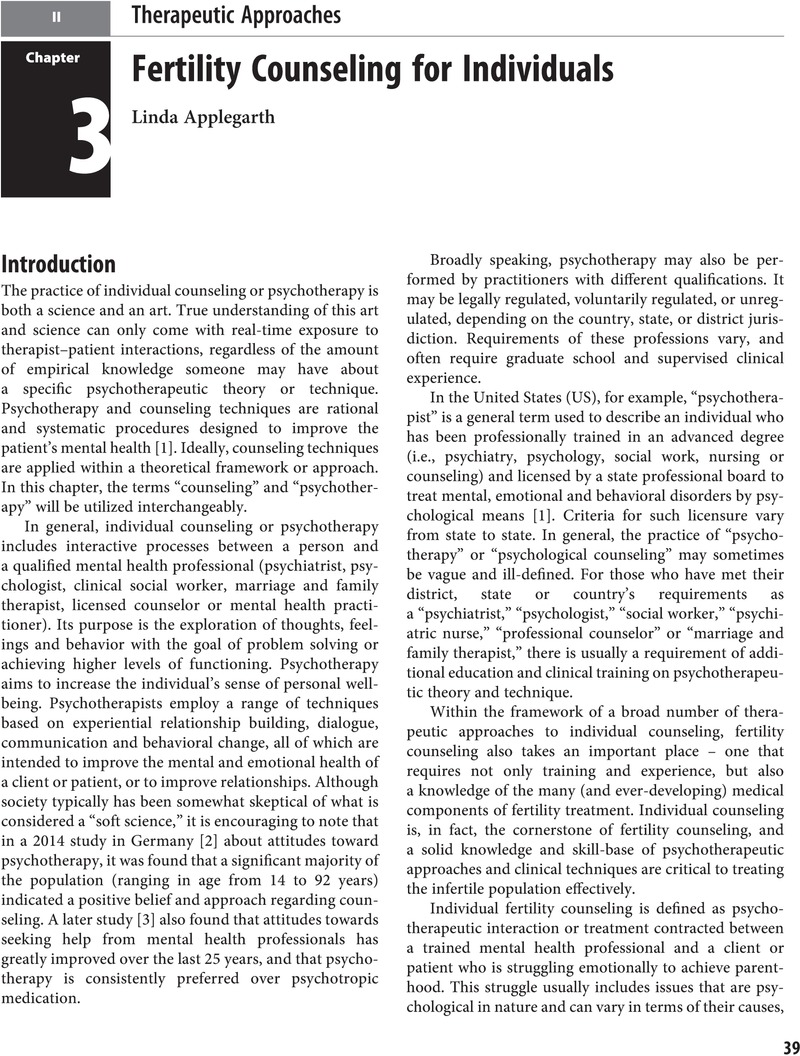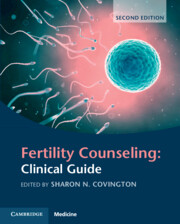Book contents
- Fertility Counseling: Clinical Guide
- Fertility Counseling: Clinical Guide
- Copyright page
- Dedication
- Contents
- Preface
- Contributors
- I Introduction
- II Therapeutic Approaches
- III Third Party Reproduction: Assessment and Preparation
- IV Addressing the Needs of Diverse Populations
- V Special Topics in Fertility Counseling
- VI Practice Issues
- The International Glossary on Infertility and Fertility Care, 2017
- Index
- References
II - Therapeutic Approaches
Published online by Cambridge University Press: 24 November 2022
- Fertility Counseling: Clinical Guide
- Fertility Counseling: Clinical Guide
- Copyright page
- Dedication
- Contents
- Preface
- Contributors
- I Introduction
- II Therapeutic Approaches
- III Third Party Reproduction: Assessment and Preparation
- IV Addressing the Needs of Diverse Populations
- V Special Topics in Fertility Counseling
- VI Practice Issues
- The International Glossary on Infertility and Fertility Care, 2017
- Index
- References
Summary

- Type
- Chapter
- Information
- Fertility Counseling: Clinical Guide , pp. 39 - 96Publisher: Cambridge University PressPrint publication year: 2022

